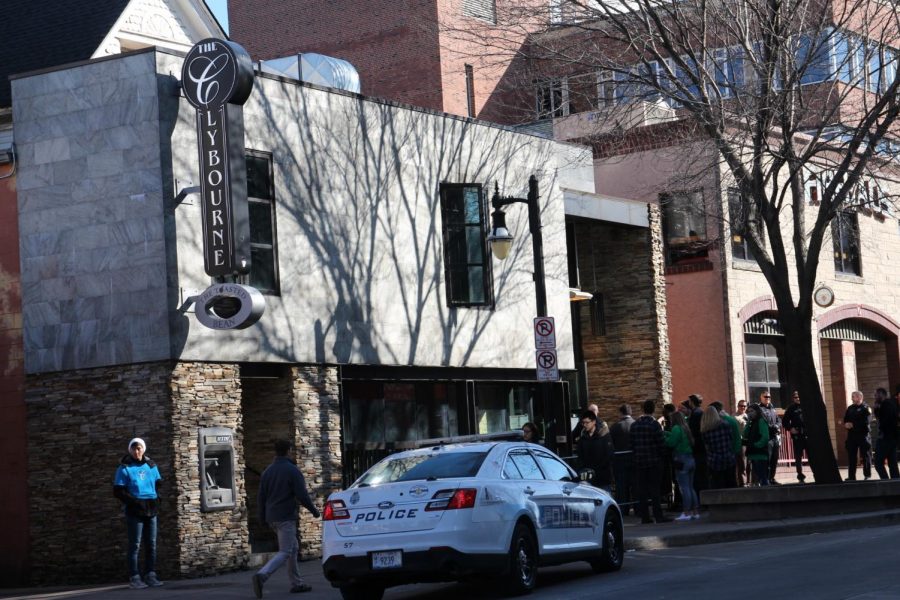Know your rights on Unofficial
A police car parked outside of the Clybourne, located at 707 S 6th St, in Champaign on Mar. 3, 2017.
Mar 1, 2018
Under the United States Constitution and the 4th Amendment, unreasonable searches and seizures are prohibited. Meaning local officers may not enter dormitories, search your residence or belongings, without a warrant.
You don’t need to let officers without a warrant into your residence, but if you do, anything found is admissible against you in court. If the police are in a place where they have a legal right to be, any evidence in plain view is also admissible in court.
If stopped by police officers or arrested, do not resist even if you feel they have no right to stop you. Be firm but not hostile; you only have to provide identification. And according to criminal-law.freeadvice.com, police do not have to Mirandize you unless you are in their custody and they start to question you.
You do not have to submit to a breathalyzer test; however, if you refuse, your driver’s license may be suspended for one year.
It is illegal for the police to use excessive force, search a person without probable cause or place a person under arrest for exercising free speech.
Get The Daily Illini in your inbox!
According to the University Student Code’s medical amnesty policy, students calling for medical help on the behalf of another student will not be subject to disciplinary action, regardless of whether or not the caller or student in need of assistance is underage.






